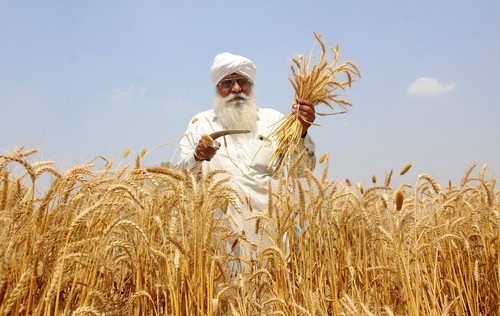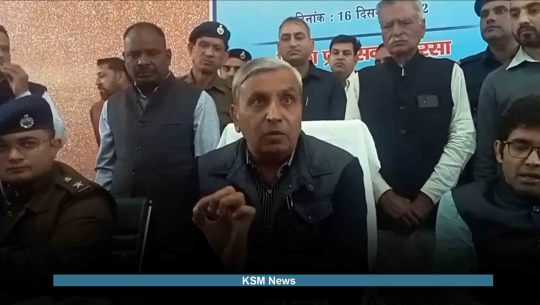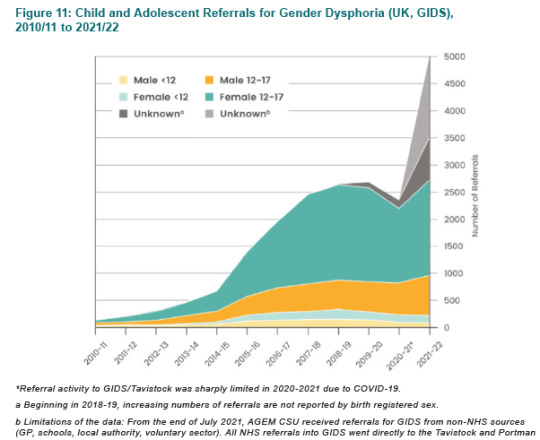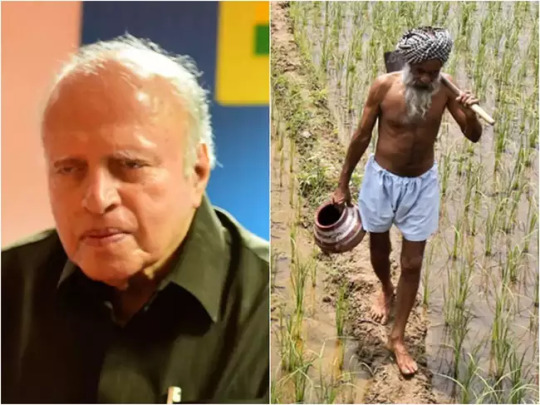#MSP Committee
Text
MSP Committee: संयुक्त किसान मोर्चा को बिनोद आनंद पर क्यों है आपत्ति?

संयुक्त किसान मोर्चा (Samyukt Kisan Morcha) ने एक प्रेस नोट जारी किया है। इसमें मोदी सरकार द्वारा गठित एमएसपी कमेटी (MSP Committee) के सदस्य बिनोद आनंद की सदस्यता को कटघरे में रखा गया है। मोर्चा के मुताबिक आनंद का कृषि क्षेत्र से कोई लेना-देना नहीं है।
कौन हैं बिनोद आनंद, कृषि और कोऑपरेटिव और न्यूनतम समर्थन मूल्य (एमएसपी) का उन्हें कितना अनुभव है। एमएसपी कमेटी में शामिल किए जाने पर संयुक्त किसान मोर्चा को आपत्ति क्यों है? जानिये-
विरोधाभास की वजह
केंद्रीय कृषि मंत्रालय द्वारा वृहद समिति के गठन के बाद संयुक्त किसान मोर्चा की नाराजगी और बढ़ गई है। इस बार केंद्र सहित सदस्य बिनोद आनंद निशाने पर हैं।
ये भी पढ़ें: MSP on Crop: एमएसपी एवं कृषि विषयों पर सुझाव देने वृहद कमेटी गठित, एक संगठन ने बनाई दूरी
केंद्र सरकार के केंद्रीय कृषि मंत्रालय ने वृहद समिति के गठन का कारण कृषि एवं कृषक उन्नयन के प्रति सरकार की सजगता बताया है। केंद्र सरकार द्वारा बहुप्रतीक्षित एमएसपी कमेटी (MSP Committee) गठन के बाद विपक्ष की ओर से कांग्रेस और बसपा ने लिखित सवाल किए थे।
तीन नाम रिक्त
कमेटी के गठन के लिए सरकार ने संयुक्त किसान मोर्चा से तीन नाम प्रस्तावित करने कहा था। मंत्रालय के अनुसार सरकार ने मोर्चा की ओर से इस समिति के लिए प्रस्तावित नामों के लिए 6 महीने तक इंतजार किया। इस संदर्भ ने मोर्चा ने अभी तक नाम नहीं सुझाए हैं।
समिति के खिलाफ मोर्चा का मोर्चा
कमेटी गठित होने के बाद मोर्चा ने सदस्यों के साथ ही सदस्य चयन प्रक्रिया पर सवाल उठाए हैं। मोर्चा ने कई सदस्यों पर सरकार और डब्ल्यूटीओ का समर्थक होने का आरोप लगाया है। ऐसे ही एक सदस्य बिनोद आनंद (Binod Anand) पर आरोप हैं कि उनका कृषि से कोई लेना देना ही नहीं है।
ये भी पढ़ें: कृषि-कृषक विकास के लिए वृहद किसान कमेटी गठित, एमएसपी पर किसान संगठन रुष्ट, नए आंदोलन की तैयारी
वहीं दूसरी ओर आनंद के पक्ष में दावा है कि, बिनोद आनंद काफी लंबे अर्से से खेती-किसानी के साथ ही सहकारिता क्षेत्र के लिए सेवा प्रदान कर रहे हैं। वो किसान आंदोलनों का हिस्सा रहे हैं, ऐसा भी उन्हें चुनने वालों का कहना है।
मोर्चा का प्रेस नोट
संयुक्त किसान मोर्चा अराजनैतिक ने आनंद की काबलियत पर प्रेस नोट के जरिए सवाल उठाए हैं। प्रेस नोट में दर्ज है कि, किसान सहकारिता समूह के प्रतिनिधि के तौर पर बिनोद आनंद को इस कमेटी में शामिल किया गया है, जिनका कृषि क्षेत्र से कोई लेना-देना नहीं है। मोर्चा ने सोशल मीडिया प्रोफाइल के हवाले से बिनोद आनंद को कटघरे में रखने की कोशिश की है।
मोर्चा के अनुसार आनंद 2010-14 तक बीजेपी की ह्यूमन राइट्स सेल की नेशनल टीम में शामिल रहे। मोर्चा का ये भी कहना है कि आनंद ने धानुका एग्रो-केमिकल (Dhanuka Agritech Limited) में भी सलाहकार के तौर पर काम किया।
प्राइवेट कंसल्टेंसी का हवाला
अपने खिलाफ खोले गए मोर्चा के मोर्चे पर बिनोद आनंद ने भी अपना पक्ष रखा है। उन्होंने प्राइवेट सेक्टर में कंसंल्टेंसी से परिवार का भरण-पोषण करने का हवाला दिया एवं दूसरे किसान नेताओं को चंदाजीवी करार दिया। उन्होंने सवाल किया कि, बीजेपी का सदस्य होने से क्या कोई सदस्य किसान नहीं हो सकता? साथ ही जोड़ा कि, किसी भी पार्टी में आस्था रखने वाला सदस्य किसान हो सकता है।
बिनोद आनंद और कृषि कानून
बिहार में नवादा जिले के घोस्तमा गांव में रहने वाले बिनोद आनंद पढ़े-लिखे छोटे किसान हैं। आनंद खेती के तौर-तरीके बदलकर उसे मॉडर्न बनाने पक्षधर हैं, ताकि किसानों के जीवन स्तर में सुधार आ सके। आनंद चर्चा में इसलिए आए क्योंकि वे कृषि कानूनों में संशोधन करके उसे लागू करने के पक्ष में थे। उन्होंने इसके लिए कुछ शर्तों के साथ अपनी संस्था के नाम से इस कानून के पक्ष में 3,13,363 किसानों के समर्थन से संबंधित पत्र, आंदोलन के दौरान ही केंद्र सरकार को सौंप दिए थे।
ये भी पढ़ें: केन्द्र सरकार ने 14 फसलों की 17 किस्मों का समर्थन मूल्य बढ़ाया
किया था विरोध
उन्होंने कांट्रैक्ट फार्मिंग एक्ट (Model Contract Farming Act, 2018) में किसानों से कोर्ट जाने का अधिकार छीने जाने पर अपना विरोध दर्ज कराया था। इसके अलावा तीनों कृषि कानूनों के कुछ प्रावधानों पर भी उन्होंने आपत्ति जताई थी। इनमें सुधार की शर्त के साथ ही उन्होंने सरकार को समर्थन प्रदान किया था।
आनंद का कहना है कि, मंदसौर किसान आंदोलन में उन्होंने शिव कुमार शर्मा कक्का और गुरुनाम सिंह चढूनी के साथ सहभागिता की थी। आनंद, राष्ट्रीय किसान महासंघ के सदस्यों में से एक सदस्य हैं। मंदसौर कांड मामले में जंतर-मंतर पर लंबे समय तक किए गए धरना प्रदर्शन में भी वे शामिल रहे। किसानों को कर्ज मुक्त करने के साथ ही कृषि फसल की पूरी कीमत की मांग के साथ वे आंदोलन कर चुके हैं।
कोऑपरेटिव रिलेशन
कोऑपरेटिव सेक्टर से उनके संबंधों के बारे में भी बात की जाती है। वे दिल्ली के इंडियन इंस्टीट्यूट ऑफ पब्लिक एडमिनिस्ट्रेशन में कई कार्यक्रम आयोजित कर चुके हैं।
ये भी पढ़ें : अब सहकारी समितियों के माध्यम से किसानों को मिलेगा सरकार की योजनाओं का लाभ
वे सहकारिता क्षेत्र के जाने-माने संस्थान पुणे स्थित वैकुंठ मेहता नेशनल इंस्टीट्यूट ऑफ कोऑपरेटिव मैनेजमेंट के अल्मुनाई हैं।
कृषि और कॉपरेटिव को लेकर आणंद, गुजरात स्थित इंस्टीट्यूट ऑफ रूरल मैनेजमेंट यानी इरमा और हैदराबाद स्थित सेंटर फॉर गुड गवर्नेंस के कई कार्यक्रमों का वे हिस्सा रह चुके हैं। आनंद, कॉन्फेडरेशन ऑफ एनजीओ ऑफ रूरल इंडिया (सीएनआरआई) के महासचिव हैं।
आरोप नहीं नाम दें
आरोपों के जवाब में बिनोद आनंद ने उल्टा मोर्चा को सलाह दी है। उन्होंने कहा कि, लंबे इंतजार के बाद भी संयुक्त किसान मोर्चा (SKM) ने नाम नहीं दिया है।
ऐसे में सरकार ने एमएसपी व्यवस्था को प्रभावी तथा पारदर्शी बनाने, फसल विविधीकरण और जीरो बजट नेचुरल फार्मिंग के लिए कमेटी का गठन कर दिया। सरकार ने इस वृहद समिति में मोर्चा की ओर से प्रस्तावित तीन नामों के लिए जगह भी रिक्त छोड़ी है। ऐसे में कमेटी के किसी सदस्य पर सवाल उठाने की बजाय मोर्चा को अपने आपसी झगड़ों को खत्म करना चाहिए। साथ ही मोर्चा को इस समिति का हिस्सा बनकर किसान के हित में काम करने के लिए सहयोग करना चाहिए।
संयुक्त किसान मोर्चा से आनंद ने सहयोगी रुख अपनाने की अपील की है, वहीं मोर्चा का रुख सरकार के खिलाफ मोर्चा जारी रखने का नजर आ रहा है।
source MSP Committee: संयुक्त किसान मोर्चा को बिनोद आनंद पर क्यों है आपत्ति?
#B.J.P Human Rights Cell#MSP Committee#Samyukt Kisan Morcha#एमएसपी कमेटी#कांट्रैक्ट फार्मिंग एक्ट#केंद्रीय कृषि मंत्रालय#न्यूनतम समर्थन मूल्य (एमएसपी)
0 notes
Text
Union Cabinet ने गेहूं और अन्य प्रमुख रबी फसलों के MSP में 9 प्रतिशत तक की बढ़ोतरी को दी मंजूरी
New Delhi: आर्थिक मामलों की कैबिनेट समिति ने बुधवार को मार्केटिंग सीजन 2024-25 के लिए सभी अनिवार्य रबी फसलों के लिए न्यूनतम समर्थन मूल्य (MSP) में 9 प्रतिशत तक की बढ़ोतरी को मंजूरी दे दी।
एमएसपी में सबसे अधिक वृद्धि मसूर के लिए 425 रुपये प्रति क्विंटल, इसके बाद रेपसीड और सरसों के लिए 200 रुपये प्रति क्विंटल की मंजूरी दी गई है।
गेहूं और सूरजमुखी के लिए 150 रुपये प्रति क्विंटल की बढ़ोतरी को…

View On WordPress
#approved an increase#Cabinet Committee on Economic Affairs#MSP for all essential Rabi crops#up to 9 per cent
0 notes
Text
Stubble Management: अनाज के बाद अब पराली को भी MSP पर खरीदेगी सरकार
Stubble Management: अनाज के बाद अब पराली को भी MSP पर खरीदेगी सरकार
Stubble Management: हरियाणा में भी बढ़ेंगे गन्ना के दाम, पराली एमएसपी पर खरीदेगी सरकार
सिरसा। (Rajender Kumar) पड़ोसी प्रांत पंजाब द्वारा गन्ना के दाम में बढ़ोतरी करने के साथ ही हरियाणा में भी किसान दाम बढ़ाने की मांग करने लगा है। हरियाणा के कृषि एवं किसान कल्याण मंत्री जय प्रकाश दलाल ने आज सिरसा में बताया कि हरियाणा सरकार भी गन्ने की फसल के दाम बढ़ोतरी को लेकर विचार कर रही है।
उन्होंने बताया कि राज्य…

View On WordPress
#Government will buy stubble on MSP#Haryana plans to procure paddy stubble at MSP: Khattar#Haryana working on plan to procure paddy straw at MSP#haryana-government-will-buy-stubble-committee-constituted-to-decide-msp#Managing stubble#Stubble Management#Stubble Waste Managemen#Sugarcane prices will increase in Haryana as well
0 notes
Text
Every day in Scotland, four pregnant women will be the victim of domestic violence.
At what should be one of the happiest times of their lives, the women will be beaten and bullied by a man, usually the father of their unborn child. Sometimes the violence will end in a miscarriage.
Yet, unlike in England and Wales, there is no specific offence of ending a pregnancy through violence or abusive behaviour in Scotland. One woman is determined to change that.
Nicola Murray from Perthshire is currently campaigning for 'Brodie’s Law', which would create an offence of “contributing or attempting to contribute, through violence, abusive behaviour, deception and/or coercion to the ending of a partner’s or ex-partner’s pregnancy”.
Her activism is rooted in harrowing life experience. She suffered two miscarriages after being violently assaulted by her then-partner. In 2013, her ex, Stuart Hunter, knocked her down with his car. She was six weeks pregnant and lost the baby. Hunter was convicted of reckless conduct and ordered to pay £300 compensation.
Nicola says she later lost a second child after being attacked by another partner. This time, after she had recovered from the loss of her son, whom she named Brodie, she set up a charity in his name to raise awareness about the issue and to support women who, like her, miscarried through domestic violence.
It was Nicola who earlier this week revealed the scale of the problem. Her Freedom of Information request to Police Scotland shows that, from 2017 to last year, pregnancy was “flagged” in 7,310 domestic incidents. That’s an average of 1,460 a year – four women a day.
The information came too late for Nicola’s appearance at Holyrood’s Public Petitions Committee last month, where she argued for a change in the law, but she did find cross-party support.
Labour MSP Paul Sweeney pointed out that other parts of the UK have a specific offence of “child destruction”, with a penalty of up to 15 years in prison. The SNP’s Fergus Ewing said he was “sorry” that the system had failed Nicola, and the committee convener Jackson Carlaw said consideration of the petition will continue after the summer recess with a roundtable discussion.
Following this week’s revelations, a Scottish Government spokesperson told the Daily Record that ministers had “followed the powerful evidence given to the Petitions Committee”, adding, “while the legal issues are complex, we will always give close consideration to the arguments made”.
Domestic abuse is on the rise in Scotland. Last year, Police Scotland recorded 65,252 incidents, an increase of four per cent compared to the previous year. The Scottish Government baldly noted, “this is the fifth year in a row this figure has shown an increase”.
The cost-of-living crisis that threatens us all could trigger a further increase. A study last year by Edinburgh University’s Centre for Research on Families and Relationships shows not only that pregnancy is a particular risk factor in domestic abuse cases, but so is financial insecurity.
The centre found that women on the lowest incomes are far more likely to experience abuse, but, contrary to all stereotypes, their investigation revealed that the odds of a woman being attacked increased with the level of her education.
Researchers discovered that the combination of being in the poorest household income groups and having a degree was associated with a much higher predicted prevalence of reported abuse.
“It is not clear why this might be the case,” they concluded, but I could hazard a guess. The misogyny that drives violence against women and girls is not peculiar to men on low incomes or without a degree, and women from all backgrounds are at risk of abuse. Domestic abuse is, and always has been, a problem for the whole of society. And trends suggest it is getting worse.
The latest series of Love Island is a case in point. Only this week, domestic abuse charity Women’s Aid contacted ITV about the "misogynistic and controlling behaviour" on the show and criticised the producers for not including "an understanding of controlling behaviour in relationships" in its inclusion training for contestants.
Frankly, the very premise of Love Island, where beautiful young women are reduced to sex objects desperate to “couple up” with a male contestant to stay on the show is, at best, sexist. It’s the Benny Hill Show for the Instagram generation, only far more sinister than the 1970s comedy. It glorifies misogyny and cruelty, the very roots of violence against women.
Women’s rights are fragile, in constant need of nurturing. Scottish ministers need to do more than give “close consideration” to the issues raised by Nicola Murray and others. They must act. A simple amendment to the 2018 Domestic Abuse (Scotland) Act, to include a specific offence of killing an unborn child through violence, is surely a straightforward solution.
And Scotland should have its own Domestic Violence Commissioner, just as there is in England and Wales, where Nicole Jacobs was appointed three years ago. She provides national leadership on this urgent social issue.
The Scottish Government is currently consulting on a Victim’s Commissioner but given the widespread prevalence of domestic violence – and the often-hidden nature of the crime – it requires a particular focus.
In the foreword to the consultation, Keith Brown, Cabinet Secretary for Justice, says the government “will listen to people with lived experience �� victims, survivors, families…”
But listening is not enough. From today until the consultation ends on Friday, 28 pregnant women will be abused in their own homes. It’s time to act.
50 notes
·
View notes
Text

By: Helen McArdle
Published: May 7, 2024
The chair of the Cass Review has told MSPs she was "surprised" by persistent levels of homophobia as well as transphobia during her review into gender identity services, as she noted that a "very high percentage" of the young people seeking help are same-sex attracted.
Giving evidence to Holyrood's Health and Social Care Committee, Dr Hilary Cass said it was easy to see "how the two things could get conflated".
She added: "This may have been naive, but one of the things that I was surprised about in conducting this review is how much homophobia there still is as well as transphobia, so we do have to support people in being able to express and understand their sexuality as well as their gender identity."
Dr Cass, whose 388-page report published in April concluded that the evidence for prescribing puberty blockers and hormone treatments to under-18s with gender distress was "remarkably weak", said that it is unclear how many patients have gone on to de-transition in adulthood due to the lack of long-term follow-up studies and because individuals who regret it "don't necessarily come back to the NHS".
She said: "That is a significant problem, but I think it's more subtle than that because for example I spoke to a young adult who started to transition very early - male to female.
"She's doing well, she had puberty blockers at the earliest stage, she had feminising hormones at the earliest stage and she passes very well as a woman, but with hindsight she knows she was a boy with intense internalised homophobia and was gay.
"But at this point in her life she's clearly not going to de-transition."

[ The majority of referrals are for birth-registered females aged 12-17 (Image: Cass Review) ]
When the first NHS gender identity service was established at London's Tavistock clinic in 1989, it saw fewer than 10 children per year - mostly birth-registered males who identified as female.
Between 2018 and 2022, it was receiving thousands of referrals a year for under-18s, 73% of whom were birth-registered females.
The Sandyford clinic in Glasgow - Scotland's only NHS gender identity service for children and adolescents - has experienced a similar shift and surge in demand, with more than 1000 under-18s waiting for their first appointment with waiting times of over four years and a majority of the demand coming those seeking female-to-male transition.
Dr Cass told MSPs that the changing profile of this cohort meant it was even harder to draw conclusions from existing evidence about the long-term consequences of puberty blockers.
She added that this group of young patients also had to be considered "within the broader context of what's happening to adolescence in Gen Z" - those born between the mid-1990s and the early 2010s.
Dr Cass said: "We know that there are very high rates of depression and anxiety, there are stresses that previous generations didn't have growing up in terms of social media, and expectations on young people that arise from that early exposure to pornography.
"We don't know what any of those do to how you might present your [gender] distress.
"Certainly for some young people, that distress or feeling that you don't fit what you perceive to be the expected gender norms may manifest through questioning your gender identity.
"That's why we have to take this as a new cohort and not rely on previous research, and work with young people to help them unpick all of those things that may have led to that gender distress."
The Sandyford clinic has suspended the prescription of puberty blockers and cross-sex hormones to any new patients under-18 following the publication of the Cass Review, but the restriction only applies to the NHS.
Dr Cass told MSPs that she had "really deep concerns" about private providers continuing to provide drugs off-label, and said that self-medication by young people was "happening way more than we would wish".
The Cass Review recommended a ban on puberty blockers to under-16s except within the context of clinical trials, and advised "extreme caution" in administering cross-sex hormones to 16 and 17-year-olds.
A clinical trial into puberty blockers is currently under development in England, and is expected to incorporate sites in Scotland and internationally.
Dr Cass told MSPs that the review's findings had been distorted by "significant misinformation", including the false claim that 98% of studies into puberty blockers and hormone treatments had been disregarded and only randomised control trials were included.
"Both of those things are wrong," she said.
Of the 102 research papers identified for puberty blockers and hormone treatments, none were randomised control trials but two were rated high quality and around 50 of moderate quality.
These were all included in the analysis.
Weaknesses tended to include follow-up periods which were too short, patients dropping out over time, or inappropriate control groups, said Dr Cass.
"It was a very poor literature compared to most other literature, including in children's healthcare practice, so that was quite striking," she said.
Dr Cass stressed that medical transition was "a really important option" for youngsters whose trans identity would be long-term and enduring, but the difficult is correctly distinguishing those individuals from patients whose distress is rooted in other factors such as unhappiness with their sexuality, undiagnosed neurodiversity, family breakdown, and mental health.
She said: "Medical transition does not come without costs in terms of effects on sexual function, fertility, knowns and unknowns about long term bone health, the limitations of surgery...it's a high cost to pay if, in the longer term, you don't [have a stable trans identity].
"Picking that sweet point where you have a high level of certainty that you're giving the treatment to the right people is very important.
"And the group that we have least understanding about is the group that we are most commonly seeing now in clinic, which is birth-registered females who are presenting in adolescence for whom there may be a range of other factors driving their gender-related distress."
#Hilary Cass#Dr. Hilary Cass#homophobia#woke homophobia#homophobia 2.0#anti gay#Cass review#Cass report#puberty blockers#gay conversion therapy#gay conversion#conversion therapy#cross sex hormones#wrong sex hormones#medical scandal#medical malpractice#medical corruption#religion is a mental illness
1 note
·
View note
Text
Nicola Sturgeon says she wants people with strong views to "treat each other with respect", after author JK Rowling criticised her on social media.
The Harry Potter author posted a selfie wearing a T-shirt calling Ms Sturgeon a "destroyer of women's rights".
It was in protest against the Scottish government's proposed gender recognition legislation.
The first minister said Ms Rowling was entitled to express her views, but defended the legislation.
The author tweeted the picture in support of a rally outside the Scottish parliament, held while a committee of MSPs backed the general principles of the Gender Recognition Reform (Scotland) Bill.
The proposed new law would make it easier for people to be legally recognised as their preferred gender and broaden the official definition of what it means to be transgender.
Anyone aged 16 or over who has lived in their "acquired gender" for at least three months would be eligible to apply and a medical diagnosis of gender dysphoria would no longer be required, removing the need for doctors' reports.
Critics including Ms Rowling believe the new law would harm the most vulnerable women and undermine the safety of women-only spaces.
Ms Sturgeon told BBC Radio's Good Morning Scotland programme: "People are entitled to express their views in whatever way they think is fit.
"I have always thought that on this issue, where people have very strong views, we should all try to treat each other with respect and that is what I will continue to do."
The Bill is currently going through the committee process and the legislation will be examined by parliament after the October recess.
The first minister added: "This bill is about reforming an existing process that is degrading and traumatic for trans people, seeking to make it less traumatic for those who want to legally change their gender.
"It doesn't give any additional rights to trans people nor does it take any rights away from women.
'Passionate feminist'
She added: "It is men who attack women and we need to focus on that, not on further stigmatising and discriminating against a tiny group in our society that is already one of the most stigmatised.
"I say this as a passionate life-long feminist, and I have spent much of my life campaigning for women's rights.
"We don't have to look very far to see the real threats to women's rights right now. They come from men who sexually and violently attack women, who try to abuse women in a misogynistic way.
"They come from law makers in parts of the world trying to take away our reproductive rights and access to abortion.
"They come from places in oppressive regimes in places like like Iran where we are seeing women rise up admirably right now."
She added: "These are the threats to women's rights, and feminists should focus on them, not on trans women who are not the threat to women's rights."
The first minister said that any man who sought to abuse the law on gender recognition for nefarious purposes would be committing a criminal offence under the proposed bill.
24 notes
·
View notes
Link
WOMEN wearing suffragette colours have been told to leave a committee room where MSPs were discussing Scotland's controversial gender reform laws.
Scottish Parliament security told one woman that her purple, white and green scarf was "political".
Another woman wearing a purely purple silk scarf was also asked to remove it if she wanted to stay and listen to the debate in Committee Room 6.
One of the women, who tweets under the name Obsolesence, told The Herald she had been attending committee discussions on the Gender Recognition Reform Bill for months, but that this was the first time she had been asked to remove her scarf.
She said she had been sitting in the room for the first ten minutes of the commitee's scrutiny of the more than 150 amendments to the legislation, when the clerk asked her to remove a scarf.
When she refused she was then asked to leave.
The women asked a security guard why now and not before, he said they had previously been "missed."
The woman - who spoke on the condition of anonymity - said: "I asked how they could be political when several of the MSPs and their advisors are wearing rainbow lanyards and he squirmed and said 'yeah I understand'."
MSPs who questioned the decision were told it was because the colours breached the code of conduct for visitors, which states that anyone coming to Holyrood must not display "banners, flags or political slogans, including on clothing and accessories (such as face coverings)."
Scottish Conservative MSP Russell Findlay said: “It’s shocking that the Scottish Parliament thinks it’s acceptable to police a woman’s clothing in this manner with the order to remove a scarf in the colours of the suffragettes.
“To do so during the discussion of a Bill that would limit the rights of women and girls makes it even worse.
“You can buy items bearing suffragette colours in the Scottish Parliament gift shop but for some baffling reason, you can’t wear these colours while listening to a committee.
“Nicola Sturgeon herself has worn a suffragette scarf in the Scottish Parliament, so this decision makes no sense.
“The Parliament fashion police need to think again. To call suffragette colours 'political' is a complete overreach and troubling attempt to control people’s lives.
"In 2018, the First Minister and a number of female MSPs marked the centenary of the Representation of the People Act, which saw women given the vote for the first time, by wearing scarves in the suffragette colours in Parliament.
The SNP's Joanna Cherry took to Twitter to criticise the decision.
She tweeted: "It seems no rule has been broken so this woman should be readmitted or the @scotparl could face a claim of discrimination on the grounds of belief, particularly where MSPs are permitted to wear rainbow colours. This is not my Scotland."
Presiding Officer Alison Johnstone later apologised on behalf of the Scottish Parliament. She said there had been an "error."
10 notes
·
View notes
Link
What exactly has the Holyrood committee backed?
A majority of MSPs on the Equalities, Human Rights and Civil Justice Committee have recommended the general principles of the Gender Recognition Reform (Scotland) Bill should be approved.
Committee convener Joe FitzPatrick said: “We believe these important reforms will improve the lives and experiences of trans people.”
Papers lodged alongside the Bill by the Scottish Government estimate the changes could result in the number of people applying for a Gender Recognition Certificate (GRC) increasing from 30 a year to 250-300.
Five MSPs on the committee backed the legislation but the two Conservatives – Pam Gosal and Rachael Hamilton – opposed it.
The Bill sets out plans to speed up the time it takes to obtain a GRC, and also lowers the age for obtaining one from 18 to 16.
A medical diagnosis of gender dysphoria would no longer be required, removing the requirement for doctors’ reports.
The period of time someone must have lived in their “acquired gender” before applying would be reduced from two years to three months under the legislation – although a three-month “reflection period” would be introduced to the process.
A previous consultation by the Scottish Government found 60% of respondents backed moving to a system of self-declaration.
A majority of MSPs on the committee backed removing the need for any medical evidence or diagnosis “believing that trans people know their own minds”.
However some on the committee were “concerned that the removal of the requirement for gender dysphoria and the requirement for medical evidence may extend the GRC process to a large and more diverse group of people”.
What concerns do people have about gender reform?
Some fear the reforms “could potentially mean the process is open to abuse from bad faith actors, particularly predatory men”.
Concerns have also been raised about the impact the reforms could have on single-sex spaces for women and girls – such as female-only toilets or changing rooms.
The report – published ahead of a demonstration outside Holyrood – said most MSPs on the committee agree that while such views are “sincerely held”, they are satisfied the Bill would not change any of the existing protections women have under the Equality Act 2010, “including the ability to exclude trans people from single-sex services where proportionate and appropriate”.
Boy, JK is starting to rival Madonna in the plastic surgery department.
Previously these were the changes she made:


And now she’s looking like this:

1 note
·
View note
Text
How can we get Gold from the Golden Fibre?

Due to its natural colour and importance jute has become known as the ‘golden fibre’ . The fabric has little impact on the environment and is proven to be very durable and the plants are easy to grow, produce a large crop and do not require various pesticides and fertilizers. The fiber is a relation of the flax and hemp plants and is extracted by a very similar method. Jute has a vast array of uses ranging from carpet backing to re-usable bags. Jute is mainly grown in India in the fertile Ganges Delta where it produces a high yield annual crop.
India is the largest producer and consumer of jute products in the world. The figure is around 1.97 million MT for India, followed by 1.24 million MT for Bangladesh, our neighbor and second largest producer, but world’s largest exporter. Yet, interest in this fiber is withering away in India due to less interest of people. We need to revive the same. The jute products include rugs, carpets, footwear, wine bottle bags, carry bags, hand bags, wall hangings, jewellery, baskets, coasters, lamp shades, decorative articles and show pieces. Slowly jute is losing market despite the fact that it is reusable, eco-friendly and bio degradable. 92% Jute is used for packaging which is under regulation which says all of food grain has to be packaged in jute bags only. Only balance 8% used for other purposes. However, demand for jute is on a downward trend because of cost competitiveness of mass production from synthetic fibres. Moreover, there are fluctuations in Government Demand for packaging, according to media reports. But, Government of India is keen to develop the sector and has hiked the MSP. The Cabinet Committee on Economic Affairs in March 2024 approved ₹285/quintal hike in the minimum support price (MSP) for raw jute to ₹5,335/quintal for the 2024-25 season as against ₹5,050/quintal for the 2023-24. The Government of West Bengal is providing Crop Insurance too, which gives a lot of security to the sector.
To improve the Jute Market, we may take Bangladesh as a reference point here, since they give 3-4 types of subsidy, including 9-10% subsidy for food packing bags. Perhaps, subsidy may be needed to revive Jute demand, in matter other than packaging. And once the desired scale is achieved the subsidy can be withdrawn. But, to work out the needed subsidy, we require detailed research. Last, but not the least, we also need to ensure only ‘Made in India’ Jute is being sold in India. We welcome your thoughts for helping the Industry to grow. Do write to us.
0 notes
Text
April 25 (UPI) -- Scotland's Scottish Nationalist Party-led coalition imploded Thursday after a three year-long power-sharing agreement with the Scottish Greens that kept the SNP in power collapsed in a row over the scrapping of carbon emissions targets.
First Minister Humza Yousaf said he had told the Scottish Greens leadership their coalition was over and that he was ending their so-called Bute House agreement, telling a press conference that the compromises the pact involved were no longer worth it.
"It is no longer guaranteeing a stable arrangement in parliament, the events of recent days have made that clear, and therefore, after careful consideration, I believe that going forward it is in the best interest of the people of Scotland to pursue a different arrangement," said Yousaf.
"That is why, following a discussion with my cabinet this morning, I have formally notified [Ministers] Patrick Harvie and Lorna Slater that I am terminating the Bute House agreement with immediate effect."
Yousaf, who replaced Nicola Sturgeon as first minister after she unexpectedly stepped down in March 2023, will now lead a minority government with the 39-year-old hailing the step as a "new beginning" for his party.
But he also held out the possibility of a relationship with the Greens going forward, saying he wanted to negotiate a "less formal" agreement with his former partners in government.
The 70-seat pro-independence coalition -- backed by seven Scottish Greens MSPs -- in the 129-seat Scottish Parliament was formed to allow the two like-minded parties to jointly govern -- although the Greens were the junior partner in the arrangement.
The split, a week after the government announced it was abandoning its target of cutting carbon emissions by 75% by 2030, was met with a furious denunciation from Greens co-leader Slater.
"This is an act of political cowardice by the SNP, who are selling out future generations to appease the most reactionary forces in the country," she said.
"They have broken the bonds of trust with members of both parties who have twice chosen the cooperation agreement and climate action over chaos, culture wars and division. They have betrayed the electorate.
"By ending the agreement in such a weak and thoroughly hopeless way, Humza Yousaf has signaled that when it comes to political cooperation, he can no longer be trusted."
Net Zero Minister Mairi McAllan confirmed on April 18 that Scotland would instead switch to five-year "carbon budgets" in line with the English and Welsh governments, with the aim of achieving its zero emissions target date of 2045.
McAllan told MSPs her decision was driven by the U.K. Climate Change Committee's conclusion that government failures to tackle emissions from home-heating systems, transport, agriculture and lack of progress on nature restoration projects meant the 2030 targets were no longer realistic.
The ditching of the 2030 targets that brought down the SNP-Greens coalition comes seven months after British Prime Minister Rishi Sunak pushed back a ban on new combustion engine vehicles by five years to 2035, arguing that amid an inflation and cost-of-living crisis government could only win the green argument by bringing people along with it.
Forcing expensive upfront costs onto already struggling consumers risked losing the whole green proposition, he said.
0 notes
Text
Farmers’ Protests: Understanding the Swaminathan Committee's recommendations for farmers
The country faces an upside-down situation with the recent farmer's protests. This has been going on for days regarding different issues. One of the needs that has been constant since 2010 is the execution of the Swaminathan Committee's report.

From Punjab to Tamil Nadu, Maharashtra to Madhya Pradesh, farmers have been asking for these recommendations to be put into action.
Krishi Gtyan
In the capital city, there is a heavy presence of protesting farmers calling for guarantees on Minimum Support Price (MSP), the enactment of the Swaminathan Committee report, changes to the Electricity Amendment Bill, and debt relief.
Krishi Vyapari
The BJP-led central government explains they need to take their time to consult everyone before making a law to ensure MSP for crops. Meanwhile, Rahul Gandhi, from the Congress party, reassures farmers that if his party wins, they'll ensure every farmer gets legal protection for MSP, following the Swaminathan Commission's recommendations. In 2019, after withdrawing the controversial farm laws, the Narendra Modi government acknowledged 200 out of 201 proposals from the Swaminathan Commission, including the MSP demand.
What is the Swaminathan Commission all about?
The late Mr MS Swaminathan, a well-known agricultural expert and recipient of the Bharat Ratna award, chaired the National Commission on Farmers. This commission issued a total of five reports between December 2004 and 2006.
The then government in 2007 sanctioned the National Policy of Farmers, based on the draft.
The plan involved improving things like land and other resources and providing farmers with good seeds timely. It also included giving them enough money from banks and confirming farmers come under the national safety plan. The commission ensured fair pricing of crops, among other things.
More insights of the commission's report:
Farmers protesting wanted a promise that crop prices would be fair, following the Swaminathan Commission's idea of the 'C2+50% formula.' This means the government should set prices at least 50% higher than what it costs farmers to grow crops. It includes things like the cost of land and capital ensuring that farmers get enough money. They also wanted the three farm laws cancelled: about trading crops, agreements on prices, and about controlling essential goods.
The panel found that problems like lack of land reforms, water issues, and farmers feeling exhausted by outdated technology were causing them to take their lives. Miserable weather conditions also made things worse. The panel wanted farming to be under both state and central government control to help. They also said corporates shouldn't take over farmland for things other than farming. They suggested rules for selling farmland too.
The commission said farmers should have fair and steady access to water for their fields. They also suggested investing more money seeing that there's enough water for farming, but this plan isn't used anymore.
To increase the productivity of Indian agriculture a group suggested putting more money into things like farm buildings and roads. They also said farmers should take better care of the land by not disturbing it too much. The practice helps the soil stay healthy.
They also talked about giving farmers easier ways to borrow money. They said the government should help make loans cheaper. They thought about Kisan Credit Cards for lady farmers so they could get loans too.
The group suggested making a special fund to help make insurance better for people living in the countryside. This fund would help pay for things to make insurance easier for them.
youtube
#agriculturenews#agriculture#farmer#farminglife#agriculturenewstoday#india#youtube#farming#crop#farmingnews#Youtube
0 notes
Text
Indian farmers march towards Delhi, welcome with tear gas and rubber bullets

Indian farmers march towards Delhi, welcome with tear gas and rubber bullets
Urdu International (Monitoring Desk) According to the international news agency “Al Jazeera“, these demonstrations are a continuation of the protests that took place two years ago, during which 600 people were killed in clashes with the police.
According to Al Jazeera, thousands of farmers have gathered on the outskirts of India’s capital, New Delhi, to demand guaranteed minimum prices for their crops, debt relief and policy reforms.
The protests are being led by more than 250 farmers’ unions, including the Kisan Mazdoor Sangharsh Committee (a platform representing more than 150 unions) and the Samyukt Kisan Morcha (SKM), which is supported by more than 100 unions. With participants coming from as far away as states like Punjab, Haryana, Uttar Pradesh, Rajasthan and Madhya Pradesh, the protests are being coordinated from Punjab and are drawing support from beyond the state’s borders.
Farmers have been marching towards New Delhi with their tractors and trucks since Tuesday this week. In an attempt to stop the march, Indian authorities have placed barricades and other heavy machinery along highways leading to the capital.
During an attempt by protestors to break barricades in Shambhu village on the Punjab-Haryana border, the Haryana police fired tear gas shells to disperse them. Haryana borders New Delhi, and is governed by Prime Minister Narendra Modi’s Bharatiya Janata Party.
The protests are a continuation of protests in and around New Delhi that took place two years ago. It continued for more than a year, during which more than 600 people were killed during a violent crackdown by the authorities. The protests ended after the government agreed to repeal three agrarian reform laws that farmers had objected to. However, their other demands were not met and the issues flared up again.
Demand for a stronger system to fix minimum support prices (MSP) to protect farmers from market fluctuations is at the heart of the protests. The protesters are also demanding debt relief and a ban on privatization of the power industry.
According to the farmers, they were forced to come to the streets again as their demands were not met. “We never wanted to do this, but farmers are committing suicide. They have huge debts. We are here to save them.”
Another farmer, Dharam Singh Sidhu, 60, vice-president of Kisan Sangash Samiti, Ferozepur, Punjab, described teargassing farmers and firing rubber bullets at protesters as “undemocratic”.
He said that under democracy, everyone has the right to protest peacefully, but despite proceeding peacefully, they are obstructing us, shelling and firing. No farmer is involved in any illegal activity. We are protesting peacefully.Indian farmers march towards Delhi, welcome with tear gas and rubber bullets
اردو میں پڑی
0 notes
Text
MINIMUM SUPPORT PRICE (MSP):-

The Commission for Agricultural Cost & Prices (CACP) is a statutory panel operating under the Ministry of Agriculture & Farmers’ Welfare, Government of India.
This expert body is responsible for proposing Minimum Support Prices (MSPs) for the notified Kharif and Rabi crops to the Cabinet Committee on Economic Affairs (CCEA).
The primary goal of the Commission is to encourage farmers to embrace modern technology, enhance resource utilization, and boost productivity.
It’s worth noting that the recommendations made by the CACP are not obligatory for the Government.
In this informative piece, Rishabh explains the new update on the Minimum Support Price. Eminent instructor Vikas Gupta has carefully examined this article to make sure it is suitable for posting on the Plutus IAS website's current affairs space.
Knowing daily current affairs updates for students aiming for UPSC exams is crucial. The Plutus IAS website makes them readily available.
Plutus IAS is well-known for providing excellent IAS coaching in Karol Bagh. Our goal is to provide subscribers with up-to-date information about current affairs. We encourage potential UPSC exam takers to learn more about the academic programs offered by our prestigious institution.
#ias coaching in delhi#upscaspirants#upsccoaching#best ias coaching in delhi#civil services examination#ias#upsc exam preparation#education#iascoaching#plutus ias#MSP#MINIMUM SUPPORT PRICE#best IAS coaching in Karol Bagh
1 note
·
View note
Note
thetimes.co.uk / article/ snp-gender-reforms-dangerous-for-women-un-official-warns-s3kxxrvcs
Thank you for the link, anon!
3 minute read
A leading UN official has condemned the SNP’s gender recognition reforms as posing a danger to women and urged Scottish ministers to postpone the legislation.
Reem Alsalem’s devastating critique dismantled the approach taken by Nicola Sturgeon’s government, describing the legislation as unfair, rushed, vague and contradictory. Above all she stressed the threat to women from violent males who could abuse the proposed self-identification process to acquire a gender recognition certificate (GRC).
In a 4,500-word letter to the UK government Alsalem, the UN special rapporteur on violence against women and girls, appealed to Sturgeon to allow “sufficient time to complete a thorough assessment of all foreseeable consequences”.
The Gender Recognition Reform (Scotland) Bill is set to be enacted by Christmas, though it was introduced at Holyrood only last month. It aims to make it easier for trans people to switch gender through “self-ID” and by lowering the age limit from 18 to 16.
Backed by the SNP-Green administration, the Scottish Lib Dems and some Labour MSPs, the legislation is bitterly opposed by feminist groups, who have received strong support from campaigners including JK Rowling.
Alsalem amplified many of the concerns raised by campaigners. She said: “Such proposals would potentially open the door for violent males who identify as men to abuse the process of acquiring a GRC and the rights associated with it. This presents potential risks to the safety of women in all their diversity.
“The Scottish government … does not provide for any safeguarding measures to ensure that the procedure is not, as far as can be reasonably assured, abused by sexual predators and other perpetrators of violence. These include access to both single-sex spaces and gender-based spaces.”
She said evidence demonstrated “that the majority of sex offenders are male, and that persistent sex offenders will go to great lengths to gain access to those they wish to abuse”.
Alsalem said the consultation on the bill had been insufficiently fair and inclusive. She added that although a Holyrood committee had listened to the voices of trans women, she was concerned that the same MSPs had told five survivors of male violence they “did not have time to see them and to put their objections in writing”.
“Second-guessing and questioning the needs of survivors of violence born female for single-sex assistance and protection services is not victim-centered and ignores and undermines the survivor’s involuntary trauma, agency, and dignity,” Alsalem said.
Echoing criticisms of the legislation made by the Equality and Human Rights Commission, Alsalem said the Equality Act 2010 permitted the provision of single-sex services, “excluding anyone born male, however they identify, as a proportionate means to achieve a legitimate aim”.
She added that she had been made aware of “reports that indicate a failure to provide single-sex spaces to female survivors of male violence, who, because of their experiences, do not feel able to access a trans inclusive service, leading to their self-exclusion from support and refuge services”.
She warned the Scottish government that it could also infringe the Equality Act if women from different religious backgrounds felt excluded by the consequences of the gender reforms.
“It is vital that service providers in Scotland continue to be able to provide both single-sex and gender-based services, and funding must be ringfenced for a certain proportion to be single sex, balancing the needs of the different demographics without placing them in conflict.”
In another critical passage, Alsalem echoed the concerns of some policy analysts who believe the quality of data collected in the census has been degraded by the SNP’s obsession with gender rather sex-based definitions.
Under the heading “the deprioritisation of sex-related data collection”, she said the Scottish government was already in breach of the UN Cedaw protocol — the Convention of the Elimination of all Forms of Discrimination against Women — which she called a “concerning” development.
Another topic, “the lack of clarity on the relationship between Scotland’s Gender Recognition Act and the UK Equality Act” showed the Scottish government’s position to be “less than clear and at times contradictory”.
Returning to the simplified procedure for obtaining a GRC, she said it would be more difficult “to determine a prior history of violence for the transitioned person in question”.
She added: “There needs to be a consideration of adequate safeguarding during the procedure of certification itself. Furthermore, the government of Scotland is yet to clarify what procedure is in place for dealing with cases of those individuals that transition back to their previous gender identity.”
Alsalem stressed that “trans persons are entitled to live a life that is free from discrimination, harassment to have their human rights safeguarded” and that existing UK law had raised “legitimate concerns” among some people wishing to transition because it required a mental health diagnosis of gender dysphoria, violating international rights and standards.
The Scottish government was asked for comment.
13 notes
·
View notes
Text
MP Assembly Elections: Cong Manifesto Promises to Buy Cow Manure, Farm Loan Waiver, IPL Team | NewsClick
MP Assembly Elections: Cong Manifesto Promises to Buy Cow Manure, Farm Loan Waiver, IPL Team
The party launched its Vachan Patra on Tuesday at Bhopal; the 106-page long manifesto has 59 promises, including unemployment allowance for youth
Bhopal: Cow manure at Rs 2/kilo, health insurance cover up to Rs 25 lakh, paddy Minimum Support Price (MSP) at Rs 2,500 per quintal and wheat at Rs 2,600 per quintal, an Indian Premier League (IPL) team of the state, are some of the promises the Congress has made in its manifesto 'Vachan Patra'.
The Congress party launched its Vachan Patra on Tuesday at Bhopal's Ravindra Bhawan ahead of the Assembly polls in Madhya Pradesh due on November 17 this year. The votes will be counted on December 3.
"We tried to cater to the needs of all sections of society in the manifesto," said Kamal Nath, launching Vachan Patra. "It was prepared after long hours of meetings, and we will fulfil the promises."
The cow manure scheme was adopted from Chhattisgarh, and health insurance up to Rs 25 lakh from Rajasthan.
In the media briefing, Congress reiterated its previous promises, including implementation of the Old Pension Scheme (OPS), caste census, farm loan waiver up to Rs 2 lakh, farmers' power bill waiver, 27% reservation to Other Backward Classes (OBCs), financial assistance of Rs 1,500 a month to women, subsidies electricity, financial assistance of Rs 500 to 1,500 to school students, LPG at Rs 500, fill two lakh vacant posts including backlogs and others.
The 106-page manifesto has 59 promises, including unemployment allowance for youth ranging from Rs 1,500 to Rs 3,000 per month for two years, Rs 1.1 lakh to girls under Beti Vivah Yojana, Rs 25,000 remuneration to journalists and others. Loans for women entrepreneurs, housing for rural homeless women, and free transportation on metropolitan bus services.
The Congress has also promised to make laws ensuring nine guaranteed rights, including Right to water, right to health, right to electricity, right to education, right to fertilisers, right to home, right to income, right to employment and right to social justice.
When asked what is new in the 2023 Manifesto, the manifesto committee head, Rajendra Singh, said, "Health insurance scheme, fixed MSP on wheat and paddy, monthly stipend to school students between 1 to 12, formation of probe panel to look into the corruption cases of recruitment."
When asked whether these schemes are financially feasible when the state has a debt of over Rs 4 lakh crore, he replied, "When we announced farm loan waiver, the then finance minister Jayant Malaiya had said that the government coffer is empty, how they would do it. But the 15-month of Congress government waived off farm loan of 27 lakh farmers. We have only announced those schemes which are financially feasible and taken help from experts."
When asked whether the Congress government would review the last six months' announcements of the present government, Congress national spokesperson Abhay Dubey said, "Every government reviews the last six months of functioning and announcements when came to power. We would do the same if voted to power."
Commenting on the manifesto, political expert Arun Dixit said that with populist announcements, the Congress has tried to make everyone happy. "From cow, religion, farmer, women, youth, old age, the Congress is trying to pamper every section of the society."
"The Kamal Nath government is said to have proposed the formation of Vidhan Parishad in the first cabinet," he said, adding that the kind of announcements the Congress has made would be difficult for the Bharatiya Janata Party (BJP) to counter.
The Congress has released a list of 144 candidates, and the incumbent BJP has released a list of 136 candidates.
In a media briefing, an hour after Congress launched its manifesto, BJP's state president, VD Sharma, said, "It's a bundle of lies. Instead of offering anything that they have promised in the manifesto, they would wrest the money poor."
Chief Minister Shivraj Singh Chouhan said, “Kamal Nath made 900 promises five years back but did not implement even nine of them. People do not trust Congress and know the BJP fulfils its promises. The Congress will not be able to mislead people.”
Madhya Pradesh, Rajasthan, Telangana, Chhattisgarh, and Mizoram are going to polls between November 7 and 30, while the results will be declared on December 3. This is the last major electoral exercise ahead of the 2024 national elections.
With 29 Lok Sabha and 11 Rajya Sabha seats, the Congress hopes to return to power in Madhya Pradesh. The party has set a target of winning 150 of the 230 seats in the state. The Congress, which came to power after 15 years of BJP rule in 2018, lost power to the BJP in March 2020 after 22 legislators defected to BJP with Jyotiraditya Scindia.
0 notes
Text
"Unyielding Farmers in Punjab Initiate 72-Hour 'Rail Roko' Protest, Putting Government's Accountability and MSP at Stake (Must-See Video)"
Farmers in Punjab’s Amritsar launched a three-day rail blockade on Thursday to demand financial aid for the losses they suffered during the floods and a guarantee on Minimum Support Price (MSP). Led by the Kisan Mazdoor Sangharsh Committee, the protest saw the participation of farmers from Haryana as well, demonstrating their unity across the country. Sarwan Singh Pandher, a member of the Kisan…
View On WordPress
0 notes